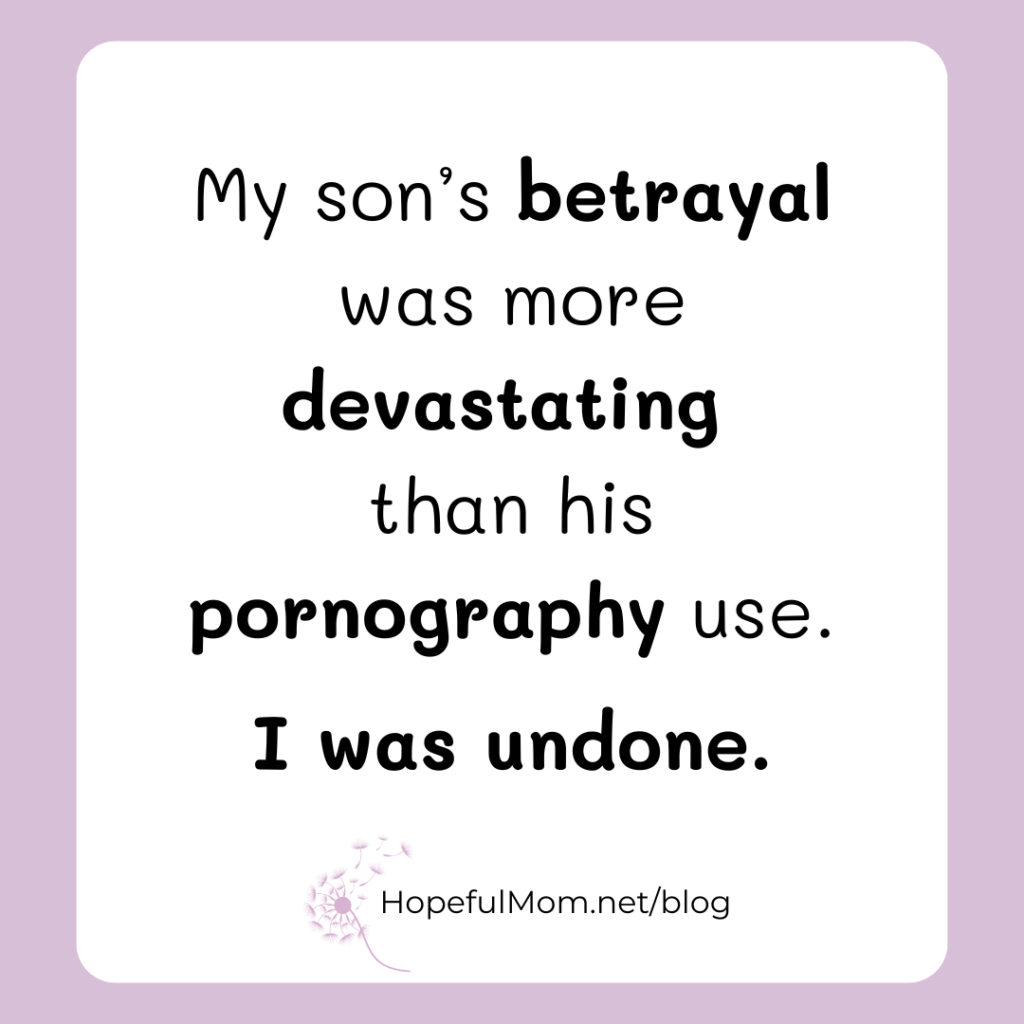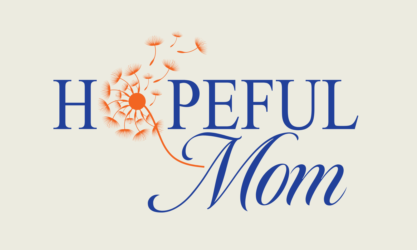Healthy relationships thrive on trust. When one person betrays the other, that trust breaks and the relationship’s solid foundation crumbles. Betrayal trauma may follow.
Several years into my son’s ordeal, I read about the effects of betrayal trauma in Dr. Sheri Keffer’s book Intimate Deception. She states, “Trauma is a reaction of our bodies, minds, and emotions to a deeply distressing event. . . . Like a death, earthquake, or car crash, the event happens suddenly and changes us without warning, causing us to feel shock, denial, agony, terror, or helplessness.” Keffer explains that these reactions can be ongoing if the deception (betrayal) is ongoing.[i]
The description rang true. I can’t enumerate all the ramifications of my son’s deceit, but I remember the sting of being lied to. At the time, I could not have imagined this child ever lying to me.
So easily.
Over and over.
Without a hint of deception.
My son’s betrayal was more devastating than his pornography use. I was undone.
Typically, betrayal trauma is associated with an intimate partner relationship. However, a child’s consistent dishonesty and disloyalty produces similar effects in a parent/child relationship. The result is psychological and emotional distress which can seep into all areas of life.

Impacts
My son had deceived me—in a sense, had been disloyal to me—for years. Yes, his porn use and other deceptive behavior impacted how I interacted with him. I no longer trusted him. But the ripple effects of the betrayal trauma I experienced touched other aspects of my life also.
Our home atmosphere changed. A secret loomed in the air and the tension was noticeable. I questioned my other children’s statements and wondered if they were lying too.
The trauma affected the connection I shared with my husband. Some days it drew us closer, whereas other days it drove a wedge between us. We agreed on treatment for our son, but the emotional strain seeped into our marriage through other avenues.
The effects changed how I interacted socially with friends and extended family. I usually talked openly about my parenting shortcomings and victories. However, in this area of life, I couldn’t share details—or even offer a broad overview. I felt like a fraud.
The situation impacted my intellect. My thinking was clouded, and my emotions were poised, ready to seize my brain at a moment’s notice. I forgot why I entered a room or the chore I was trying to complete. I couldn’t remember simple things, like where we kept the forks. I was forced to stop, close my eyes, and focus on normal, everyday tasks.
Our finances were affected as we began paying for filters and other resources.
The ordeal infringed on my physical well-being. My anxiety spiked, and I teetered between bingeing on sugary snacks and eating nothing at all. Sleep was elusive, my mood unstable, and my sensitivity heightened. I wavered between numbness and breaking down. The stress was overwhelming.
The betrayal trauma influenced my relationship with God. I threw questions in anger at Him one day and put my head in His lap and cried like a baby the next. Thankfully, His steadiness was one constant in my turbulent life. His strength empowered me to keep going, to get out of bed each morning, and to continue parenting my child. His love propelled me to keep loving, to plug away, to stick it out.
He quieted my fears.
A child's lying and deceiving may lead to a parent suffering from betrayal trauma. This can affect all areas of life, including their close relationships, intellect, and physical well-being. The Impact of Betrayal Trauma on Parents… Share on XCombatting Betrayal Trauma
Are you feeling the effects of betrayal trauma? Are you stunned by your child’s deception and lying? Is your relationship with your child damaged? Are you now struggling to trust others? Have the effects seeped into other areas of your life? I hope the following helps.
- Pinpoint how the trauma has affected your relationships, emotions, and well-being.
- Talk with your child about a plan to mend your relationship.
- Explain to close family and friends that your trust has been broken and that you are hurting. Advise them on how they can help you learn to trust again.
- Recognize that your child’s betrayal is not personal. Their brain is still developing, and their desire to watch porn has nothing to do with you.
- Forgive your child.
- Take care of yourself.
- Keep long-term goals in mind. Healing is not quick. Focus on everyone’s optimal health.
- Establish boundaries within your relationships.
- Let go of what you can’t control.
- Trust God.
You’ve got this!
Will you join me in spreading the word about online dangers and the impact on children and parents? Please share this post on social media. Subscribe to Hopeful Mom for updates to the blog and TWO FREE PDF downloads. If you have been impacted by a child’s pornography use, check out the “My Child Saw Porn” downloadable booklets.
[i] Keffer, Intimate Deception, p. 45.
About the author
Barb Winters is the author of Sexpectations: Helping the Next Generation Navigate Healthy Relationships and founder of Hopeful Mom. She’s a certified mental health coach and offers one-on-one consultations for parents. For more about Barb, click "About" in the menu.



